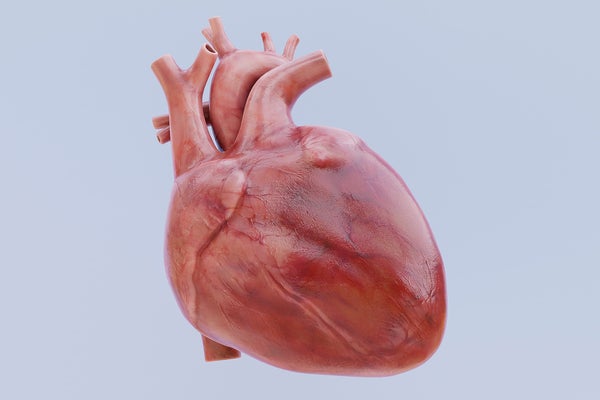
Instead of moving forward and returning to normalcy, health officials double down on precautionary measures to “limit the spread of RSV, the flu and COVID.”
This month, Santa Clara County decided that everyone — patients, caregivers, and healthcare providers alike — must don the all-too-familiar face masks in public patient care areas in hospitals, clinics, and long-term care facilities. This directive is not for a week or a month but for the entire “winter respiratory virus period,” Mercury News reported.
This mandate is slated to span from November 1 to the end of March. That’s a whole five months of mask-wearing, in spite of declining COVID cases.
Marin County has jumped on the bandwagon, implementing a comparable order. As if that weren’t enough, Alameda, San Mateo, Contra Costa, and Sonoma counties aren’t far behind, mandating their healthcare workers to be masked up in patient care areas starting this week.
Health officials are signaling residents to stock up on rapid COVID tests. And it doesn’t end there. The federal government, under the Biden regime, has brought back the program that offers free COVID tests. Since September 25, consumers have been eligible to request a shipment of four rapid at-home tests through the USPS site.
KTVU reported:
Dr. Peter Chin-Hong told KTVU medical professional don’t know what is going to happen during this flu season, so they’re opting to take a precautious approach.
Though, not everyone in the health care industry agrees.
“We’re over it,” one hospital worker told KTVU who wished to remain anonymous. “Our patients we still dont know if they’re coming in with Covid, but it doesn’t scare me.”
Health officials across the state are also encouraging anyone above the age of 6 months to get the latest COVID 19 vaccine, flu shot and for vulnerable populations the RSV vaccine.
Numerous studies have suggested that continuous and long-term use of face masks could lead to health implications.
In April, The Gateway Pundit reported on a German study that reveals that using a face mask during pregnancy may increase the chance of stillbirth, testicular dysfunction, and cognitive decline in children.
When worn for extended periods of time, facial coverings may increase the risk of mild carbon dioxide (CO2) poisoning, according to a review of 43 previously published studies on exposure to CO2, mask-wearing, and pregnancy by German researchers.
Researchers in Germany found that elevated levels of carbon dioxide in pregnant women were associated with an increased risk of birth defects.
The German researchers reviewed a study that found that even short-term exposure to concentrations of CO2 as low as 0.3% caused brain damage, increased anxiety, and impaired memory in both pregnant rats and young mice. Testicular cells and sperm were destroyed in another study when male mice were exposed to 2.5 percent CO2 for four hours, the human equivalent of which is 0.5 percent. A third study found that stillbirth and birth defects occurred in pregnant rats exposed to 3 percent CO2 (equal to 0.8 percent for humans).
A study from researchers at Jeonbuk National University in South Korea, released in April and quietly being re-shared, suggests the “gold standard” surgical N95 masks may expose users to dangerous levels of toxic chemicals.
A study reported by the NCBI, which is under the National Institutes of Health, showed that masks do absolutely nothing to help prevent the spread of COVID-19 and their use is even harmful.
The study concludes (emphasis added):
The existing scientific evidence[s] challenge the safety and efficacy of wearing facemask as preventive intervention for COVID-19. The data suggest that both medical and non-medical facemasks are ineffective to block human-to-human transmission of viral and infectious disease such SARS-CoV-2 and COVID-19, supporting against the usage of facemasks. Wearing facemasks has been demonstrated to have substantial adverse physiological and psychological effects. These include hypoxia, hypercapnia, shortness of breath, increased acidity and toxicity, activation of fear and stress response, rise in stress hormones, immunosuppression, fatigue, headaches, decline in cognitive performance, predisposition for viral and infectious illnesses, chronic stress, anxiety and depression. Long-term consequences of wearing facemask can cause health deterioration, developing and progression of chronic diseases and premature death. Governments, policy makers and health organizations should utilize [a] proper and scientific evidence-based approach with respect to wearing facemasks, when the latter is considered as preventive intervention for public health.
Even the Association of American Physicians and Surgeons (AAPS) has released a statement challenging the effectiveness and ethicality of mask mandates for respiratory viruses, including COVID-19. The AAPS argues that not only are these mandates ineffective in stopping the spread of respiratory viruses, but they also pose potential health risks and infringe upon individuals’ rights to informed medical consent.
“Government recommendations and mandates regarding face coverings have been contradictory, provided to the public as authoritative without evidence, are in conflict with the available data, and neglect to mention any potential harm from use of coverings or masks,” the association added.
In challenging the effectiveness of masks in preventing the spread of respiratory viruses like COVID-19, the AAPS cited a Cochrane systemic review. The review found no clear evidence suggesting that medical or surgical masks were effective in reducing respiratory viral infections among healthcare workers when compared to N95/P2 respirators.
The AAPS statement also delved into the potential harm that can result from prolonged mask usage. Drawing on over 60 studies and reports, it listed several areas of concern:
- Prolonged use of mask is not a neutral event and in fact can cause harm. “Prolonged use of N95 and surgical masks by healthcare professionals during COVID-19 has caused adverse effects such as headaches, rash, acne, skin breakdown, and impaired cognition in the majority of those surveyed.”
- Findings indicate that wearing the N95 mask for 14 hours significantly affected the physiological, biochemical, and perception parameters in a negative fashion.
- The possibility that masks hinder the acquisition of speech and language in children exists. “Overall, the research to date demonstrates that the visible articulations that babies normally see when others are talking play a key role in their acquisition of communication skills. Research also shows that babies who lip-read more have better language skills when they’re older. If so, this suggests that masks probably hinder babies’ acquisition of speech and language.”
- Experimental data has shown “carbon dioxide content in inhaled air rises on average to 13,000 to 13,750 ppm no matter whether children wear a surgical or an FFP2 mask. This is far beyond the level of 2,000 ppm considered the limit of acceptability and beyond the 1,000 ppm that are normal for air in closed rooms. This estimate is rather on the low side, as we only measured this after a short time without physical exertion.”
- Society requires facial recognition as a most basic component of interaction and communication. Studies in individuals with age-related macular degeneration (AMD) have shown that “Poor face perception in AMD is an important domain contributing to impaired social interactions and quality of life”. Voluntary masking with no gain contributes to societal alienation.


























































